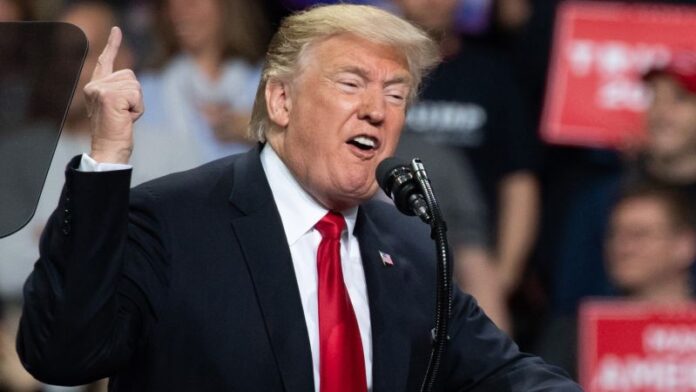“The Curious Case of President Trump’s Greenland Obsession”
President Trump’s recent public comments about his interest in purchasing Greenland have left many scratching their heads. The president’s fascination with the Danish territory, which is not for sale, has sparked confusion and bewilderment among political analysts and foreign policy experts.
In a recent interview, President Trump expressed his desire to acquire Greenland, calling it “strategically interesting” for the United States. He went on to say, “Denmark essentially owns it. We’re very good allies with Denmark. We protect Denmark like we protect large portions of the world. So the concept came up and I said, ‘Certainly, I’d be.’ Strategically it’s interesting and we’d be interested, but we’ll talk to them a little bit. It’s not number one on the burner, I can tell you that.”
This peculiar statement has raised eyebrows across the globe. Experts have been quick to point out that Greenland is an autonomous territory of Denmark and is not for sale. The Danish Prime Minister, Mette Frederiksen, called the idea of selling Greenland “absurd.”
President Trump’s comments about Greenland are just the latest in a string of bizarre and often false statements that have come to define his presidency. According to the Washington Post Fact Checker, President Trump has made over 12,000 false or misleading claims since taking office, averaging about 13 false claims per day.
This pattern of misinformation has significant implications for public discourse and trust in institutions. The spread of false narratives has been linked to the erosion of public trust in the media, government, and other key institutions. Studies have shown that misinformation can influence public opinion and behavior, leading to a lack of confidence in democratic processes and institutions.
In addition to his false claims, President Trump’s comments have also sparked controversy and legal issues. His repeated attacks on the media as “fake news” have raised concerns about press freedom and the safety of journalists. His statements about election integrity and voter fraud have led to legal challenges and accusations of voter suppression.
As the 2020 election approaches, it is crucial for the public to be aware of President Trump’s record of false statements and the potential impact on public discourse and trust in institutions. It is important for journalists and news outlets to continue to fact-check and provide accurate information to counter the spread of misinformation.
In conclusion, President Trump’s fascination with Greenland is just one example of his penchant for making bizarre and often false statements. His record of misinformation has significant implications for public discourse and trust in institutions. As the 2020 election looms, it is crucial for the public to be informed about the impact of false claims and to seek out reliable sources of information.
Source link
Redirect URL
